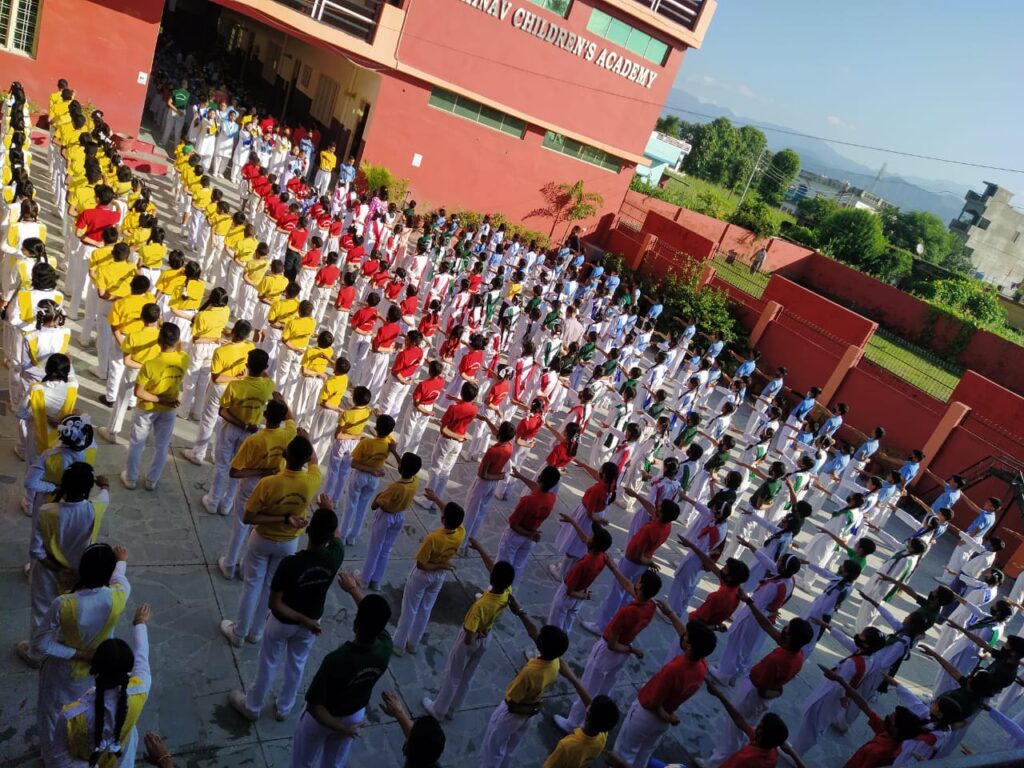
Pre-Primary (Play and KG)
Once enrolled in kindergarten, children will learn basic concepts like reading, writing, math, time, dancing, shapes, describing emotions, identification of alphabets and numbers, verbal skills like public speaking, rhymes and more. These skills will form a foundation for learning future concepts in each subject whether in scholastic area or co-curricular activities. Additionally, they learn important social skills as well as how to function in a school environment.
Primary School (Class I to V)
The basic inputs that the child has been provided at the formative stage are consolidated at this level as the student becomes capable of understanding basic concepts of the various subjects. The classrooms and infrastructure have been carefully selected to ensure that the sense of belonging created in the early years carries on with the child as he/she moves to the junior school. Various co-curricular and extra-curricular activities are introduced at this level and the children are encouraged to explore their creativity and individual talent.
Upper Primary and Highschool (Class VI to X)
When the child enters Class VI, the school helps to make the transition from a protected environment to one where the child develops individuality and personality. The child is also encouraged to develop interest in specific subjects as per their aptitude and potential so that in the later year’s child may specialize in their chosen areas. The subjects are taught by specialist teachers trained specifically for teaching particular subjects. The curriculum includes English, Hindi, Mathematics, Science, Social Sciences, Computer, Sanskrit, General Knowledge, Arts, Music, and Sports.
Apart from the unit tests, results of which are intimated to parents, terminal examinations are organized twice each year. The half-yearly examinations take place in September/October while the final examinations are conducted in March every year.
Session starts: First Week of April
Summer Vacations: Third week May to first week of July
First term ends: Third Week of October
Second term begins: Second week of November
Winter Vacations: Late December to Mid January
Session ends: March 31st
